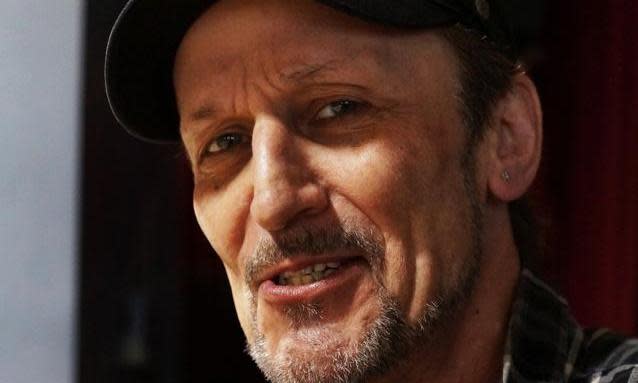Russell Newcombe obituary

Russell Newcombe, who has died aged 66 of lung cancer, was an advocate of progressive policies on illicit drug use and the first person to use the term “harm reduction” to describe an alternative path to the punitive goals of the “war on drugs”.
His reputation as a leading researcher in the field led Russell to be engaged by the Home Office to study drug-using populations, and he also lectured at police training colleges, ran courses for drugs workers, collaborated with progressive policymakers abroad, and lent his energies to drug user organisations and anti-prohibition campaigners.
Russell’s expertise at searching out often overlooked official data and using it in incisive and authoritative reports demanded long working hours, for which he often had recourse to artificial stimulants. Understanding the experiences of drug users was central to his practice, and he experimented widely with psychedelics and other compounds. He felt a moral obligation to be open about his drug use and rejected the stigma attached to it.
Russell was born in Shrewsbury to Bill, a garage manager, and his wife, Vera (nee Davies), a hotel cook. After attending the Wakeman school in Shrewsbury he went to Sussex University (1976-79) for a social science degree, followed by a PhD at the University of Kent (1979-83).
After two years as a research assistant at Chelsea College in London, looking at school policies on smoking, he moved in 1985 to Liverpool, where a crisis of injecting drug use was being compounded by the Aids pandemic.
In Liverpool he was for two years a research associate on the misuse of drugs project at the University of Liverpool, and it was in that job that he made the first use in print of the term “harm reduction” – in a January 1987 issue of Druglink magazine. After a year as a research manager on South Sefton district health authority’s drug education research project he became director of the drugs and HIV monitoring unit at Mersey regional health authority (1988-91).
Moving on to take up a research fellowship with the alcohol, drugs and crime project at the University of Manchester, in 1993 he set up his own drugs research bureau, 3D, advising, among other things, on drugs use associated with the rise of the rave scene. From 1998 to 2010 he was first a senior lecturer in the school of psychology and natural sciences at Liverpool John Moores University and then senior researcher at Lifeline publishers, specialising in writing reports on drug related topics, including a study of 100 clients of the Manchester needle exchange programme and interviews with homeless people who use drugs.
In 2010 he resurrected his 3D consultancy, producing further reports, training health professionals and putting his experience to use as a consultant for film and TV producers who needed advice on how to depict drug use accurately. Together with his second wife, Cher (nee White), a Canadian drugs expert whom he married in 2012, he worked with Benedict Cumberbatch on his Bafta-winning performance in the TV mini-series Patrick Melrose (2018), about an upper class Englishman trying to deal with alcoholism and heroin addiction.
Two weeks before Russell’s death, the UN Commission on Narcotic Drugs finally passed a resolution accepting the term “harm reduction” after decades of resistance: it was a fitting tribute to his journey from the margins of drug policy to mainstream recognition.
He is survived by Cher, by two children, Jack and Ella, from his first marriage to Jane (nee Gregory), which ended in divorce, and four grandchildren, Hayley, Zak, Maisie and Alfie.


